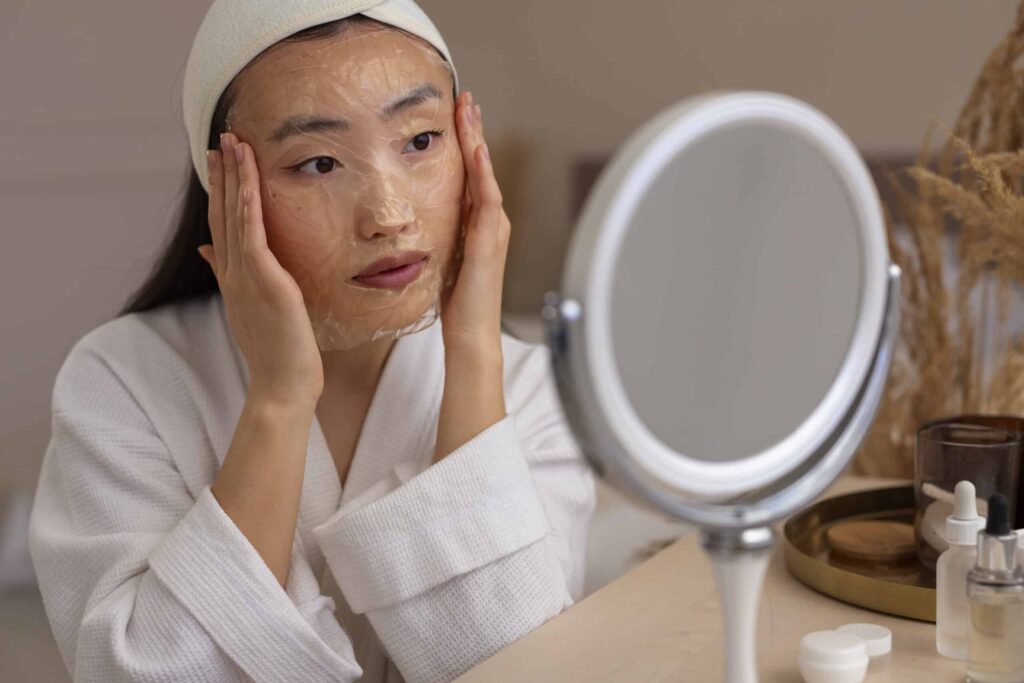In recent years, the skincare industry has witnessed a rise in the popularity of oil-free moisturizers. These products, often marketed as the ideal choice for oily and acne-prone skin, have garnered a lot of attention. However, along with their popularity come several misconceptions that can lead to confusion and, in some cases, prevent people from choosing the right products for their skin type. In this article, we will debunk the most common myths about oil-free moisturizers and shed light on why they might just be the skincare solution you’ve been looking for.
Myth 1: Oil-Free Moisturizers Are Only for Oily Skin
One of the most pervasive myths about oil-free moisturizers is that they are suitable only for individuals with oily skin. While it’s true that oily skin types can benefit from these moisturizers, they are not exclusively for people with excess oil production. In fact, oil-free moisturizers can be a great choice for all skin types, including dry and combination skin.
For those with oily skin, using an oil free moisturizer helps hydrate the skin without clogging pores or adding to the greasy feeling. On the other hand, individuals with dry skin may prefer oil-free options that hydrate without feeling too heavy or greasy. Many modern oil-free moisturizers contain hydrating ingredients like glycerin, hyaluronic acid, and aloe vera, which provide moisture without the weight of oils, making them a versatile choice for a wide range of skin types.
Myth 2: Oil-Free Moisturizers Are Not Effective for Hydration
Another common misconception is that oil-free moisturizers don’t provide adequate hydration. This myth likely stems from the belief that oils are essential for moisturizing the skin. While oils can be beneficial, hydration doesn’t always require them. Oil-free moisturizers often contain water-based formulations or humectants, such as hyaluronic acid and glycerin, which draw moisture into the skin and keep it hydrated for longer periods.
These moisturizers are particularly beneficial for people who want to maintain a matte finish without the heavy feeling that oils can sometimes leave behind. Many oily skin moisturizers are designed to balance the skin’s moisture levels while preventing excessive shine.
Myth 3: Oil-Free Moisturizers Cause Dryness and Irritation
There is a misconception that oil-free moisturizers can cause dryness or irritation, especially for individuals with sensitive skin. However, this is not necessarily true. Oil-free products are formulated to hydrate without overwhelming the skin with heavy oils, which is especially important for those prone to acne or clogged pores.
Myth 4: Oil-Free Moisturizers Don’t Provide Enough Protection Against the Sun
Some people believe that oil-free moisturizers lack the ability to protect the skin from harmful UV rays. This is far from the truth. Many modern oil-free moisturizers are formulated with SPF protection, providing both hydration and sun protection in one product. Sunscreens with broad-spectrum protection can be easily incorporated into an oil-free moisturizer, making it a convenient and effective skincare choice.
In addition, some oil-free moisturizers contain antioxidants like Vitamin C and E, which can further protect the skin from environmental damage and free radicals. This makes them an excellent choice for everyday sun protection, even for those with oily or acne-prone skin.
Myth 5: Oil-Free Moisturizers Make Oily Skin Worse
Many people with oily skin fear that using an oil-free moisturizer will make their skin even oilier, but this is not the case. In fact, properly hydrating oily skin is essential for maintaining a healthy balance. When the skin is not adequately moisturized, it can overcompensate by producing even more oil, which can worsen the appearance of shine and lead to breakouts.
An oily skin moisturizer can help to regulate oil production by providing moisture without triggering excess sebum production. By keeping your skin properly hydrated, you help restore balance, which can reduce the likelihood of clogged pores and acne.
Myth 6: Oil-Free Moisturizers Can’t Be Used at Night
Another myth about oil-free moisturizers is that they are not suitable for nighttime use. This misconception stems from the idea that night creams need to be rich and nourishing, often with oils or heavier ingredients. However, oil-free moisturizers can still provide the hydration and skin benefits needed for nighttime restoration.
For nighttime skincare, you may prefer an oily skin moisturizer with lightweight, non-comedogenic ingredients that won’t clog pores. These moisturizers work well to repair and hydrate your skin while you sleep, without leaving a greasy residue. Many oil-free options also contain ingredients like peptides or retinoids that support skin repair and rejuvenation during the night.
Myth 7: Oil-Free Moisturizers Are Only for Summer
Some people believe that oil-free moisturizers are only necessary during warmer months when oil production is at its peak. While it’s true that warmer weather can lead to increased sebum production, oil-free moisturizers are beneficial year-round. In colder months, the skin can still produce excess oil, especially in combination areas like the T-zone, and using an oil-free product can help keep everything balanced.
Moreover, oil-free moisturizers provide a lighter, non-greasy feel that can be particularly appealing during colder weather when thicker creams might feel too heavy or pore-clogging.
Conclusion
Oil-free moisturizers are versatile and effective skincare products that can benefit a wide range of skin types, from oily and acne-prone skin to dry and sensitive skin. By debunking the common myths about oil-free moisturizers, we can better understand how to incorporate these products into our skincare routines to maintain healthy, balanced, and hydrated skin.
Whether you’re looking for a moisturizer for oily skin or a lightweight option that hydrates without excess shine, an oil-free moisturizer could be the perfect solution. Always be sure to choose one with high-quality, non-comedogenic ingredients, and don’t be afraid to experiment until you find the formula that works best for your skin’s needs.

